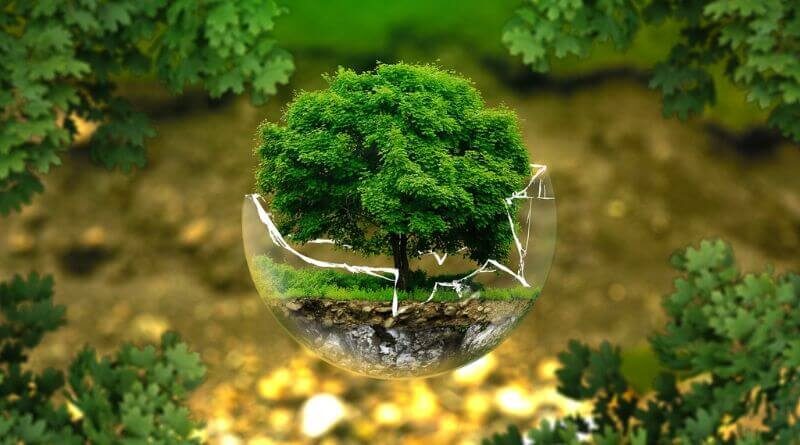What is environmentalism? Concept and benefits
Our planet is at a key moment and whole society is becoming increasingly aware of it: we recently learned that climate change is considered the main concern of citizens on a global scale.
This contributes to the creation and development of movements that advocate for the protection of the planet and our ecosystems, as well as the use of concepts that sometimes are not so clear in the collective mind. One of them is environmentalism, a term that can be confused with ecology and that we come to use interchangeably, although they do not mean the same thing.
That’s why in today’s article we want to talk about environmentalism, present what it means, show the benefits it brings us and explain everything you need to know about this movement.
The concept of environmentalism
According to the Real Academia Española de la Lengua, ecologism is the “socio-political movement that, with very diverse nuances, advocates the defense of nature and, in many cases, that of men in it”.
This environmental movement, also known as the green movement, ecologism or environmental movement, is a global social and political organization the main objective of which is the defense of the environment, promoting environmental education, pressure and denunciation of initiatives that are not ecologically responsible and conservationist public policies.
Environmentalism is not so much a constituted whole, but it is organized as a varied and sometimes contradictory series of initiatives and non-governmental organizations (NGOs) that can be local, regional or planetary. In most cases they are spontaneous and modest organizations, although there are other larger ones with decades of experience and solid, international structures.
The idea behind these movements and organizations is that as human beings we must make profound changes in our behavior if we are to integrate into our environment. In other words, environmentalism accepts that we are also part of the ecosystems and are not isolated entities, so that any action we take will alter their balance.
The objectives and purposes it promotes are different, but the most important and outstanding ones we would like to mention are as follows:
- Promoting environmental education.
- Promoting laws of ecological responsibility.
- Boycotting the consumption of products harmful to the ecosystem.
- To alert humanity to the short, medium and long term environmental effects of the industrial model of production and consumption.
- Mobilizing the population towards recycling, conservation and the rescue of ecosystems.
- Proposing a responsible environmental political model, known as political ecology, that is directed towards global change.
- Ensuring a healthier model of urban living, with access to clean water, air and land.
Why is the environmental movement so important?
Thanks to environmentalism and its various organizations, some important achievements that favor the ecology of our planet have been obtained, e.g.:
- Society’s environmental awareness, since issues such as acid rain, climate change and the ozone layer are already on the daily agenda, among others.
- Understanding that the planet’s natural resources are limited, and therefore we must use them, but without compromising future generations.
- A change in human behavior with respect to activities that are harmful to the Earth.
- The commitment of the States to reverse environmental degradation, with the example of the Kyoto Protocol of 1997, in spite of its non-compliance by some countries.
- Better communication within and between organizations, allowing their message to reach all levels of society.
Ecology vs. environmentalism
As it was mentioned at the beginning of this article, it is easy to confuse ecologism with ecology, two different but complementary disciplines that are necessary to face the environmental challenges we are facing today.
While environmentalism is the socio-political movement concerned with the protection of nature, ecology is the science that studies ecosystems, that is, the combination of species (including humans) and the environment they inhabit as well as the interactions between them.
The RAE’s definition of ecology is “science that studies living beings as inhabitants of an environment and the relationships they maintain with each other and with the environment itself”; therefore, it is a scientific, objective discipline which stands far from ethics or morality.
Ecology is also closely related to genetics, ethology and evolutionary biology – fields that intersect with its subjects of study, and has a large number of practical application areas, such as natural resource management, urban planning or economics, and many others.
In addition, it is divided into a large number of disciplines, some of which are:
- aerobiology,
- marine ecology,
- biogeography,
- urban ecology,
- mathematical ecology.
Thus, the difference between both concepts is clear.
How can I help environmentalism?
To contribute with a small grain of sand it is not necessary to make big actions, sometimes, with small gestures we can contribute to achieve a healthier environment. Some actions and habits that are easy to incorporate into our daily lives are:
- Stop the consumerist lifestyle, as this is considered unnecessary and anti-ecological. Therefore, before buying something, think about whether you really need it.
- Consume less electricity, either with small gestures in our daily lives or by switching to renewable energies. In addition, it will benefit our economy.
- Practice recycling and make it a daily habit.
- Avoid single-use plastics, as they are composed of highly polluting materials, and it is necessary to reduce their use or give other applications to the containers.
- Use natural and ecological cleaning products such as lemon, baking soda, vinegar, soap or essential oils.
- Use water rationally and make efficient use of it, since drinking water is a very scarce resource. Yes, although it may surprise us, only 3% of the planet’s water is fresh, and of that small percentage, 1.74% is found in continental ice and glaciers; in other words, just over 1% of the world’s total water is available to us.
- Avoid products with planned obsolescence: products manufactured by companies with a limited life span and that we are forced to change.
- Prioritize outdoor activities, they are also healthier and will help us to value nature more.
- Practice sustainable mobility.
- Do not use highly polluting products such as batteries or plastic bags.
- Reduce the consumption of animal foods and replace them with those of vegetable origin.
We hope that this article has made the concept of environmentalism clear, and that you will join this movement to help our planet, too. And if you want to know the latest news about the environment, don’t miss any of our publications.

